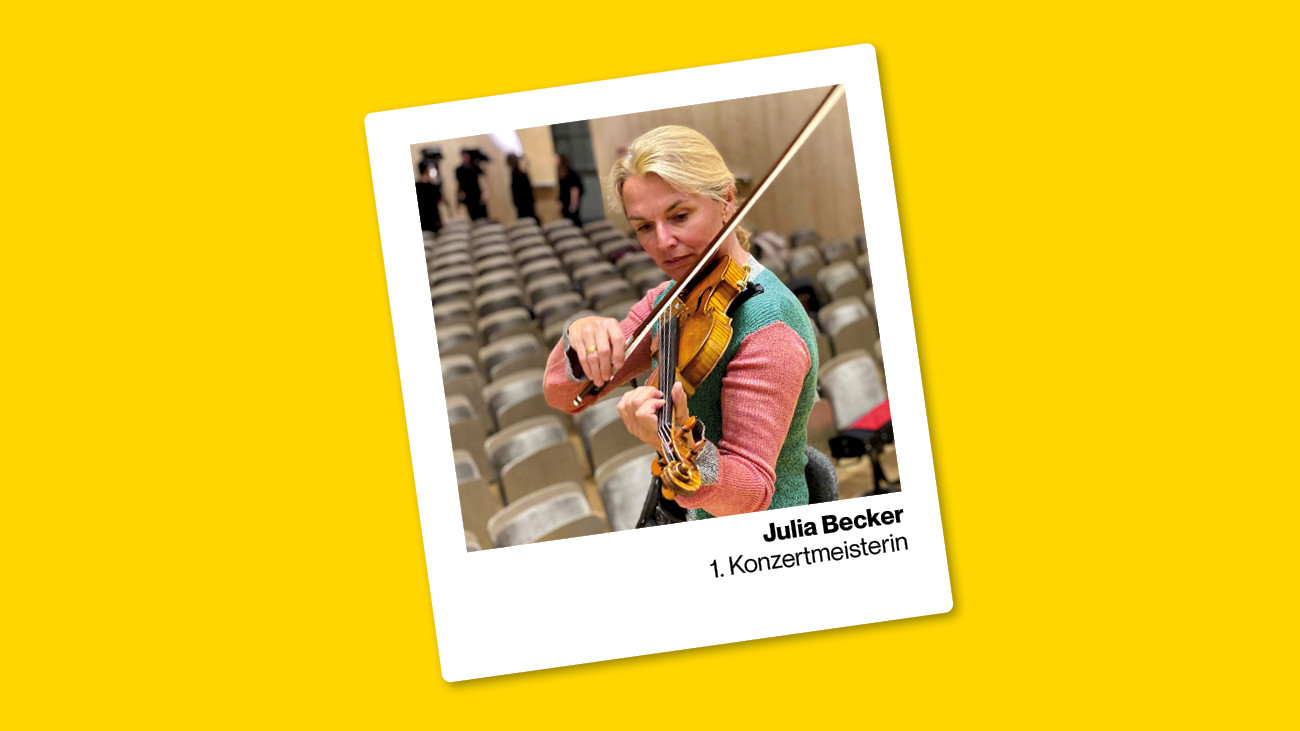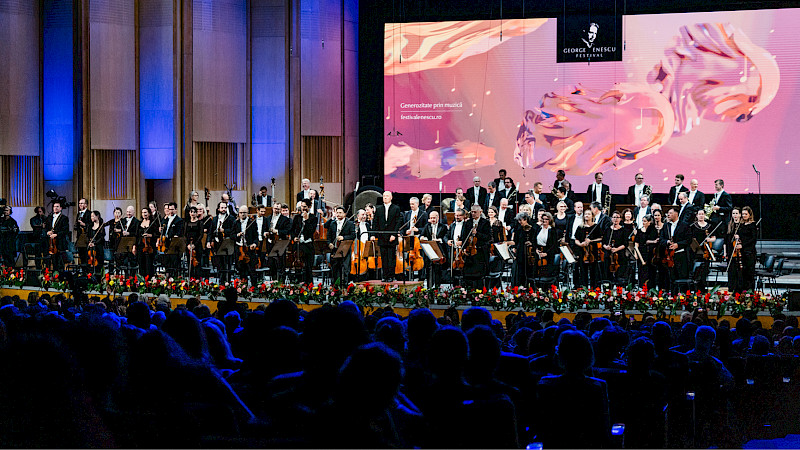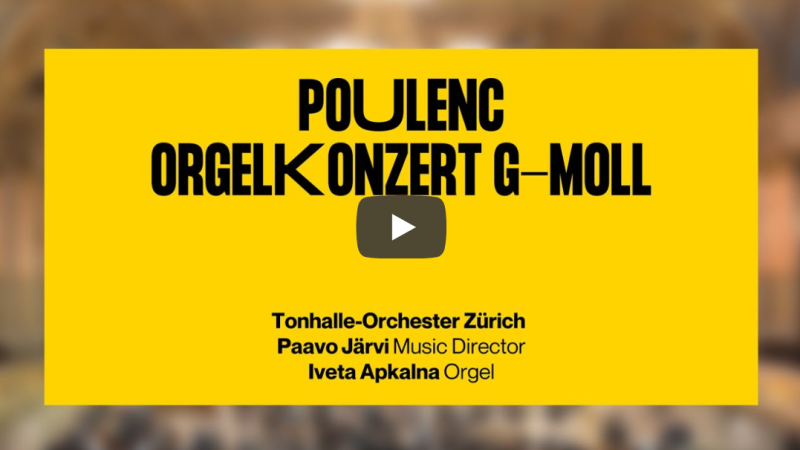
Water and music: her favourite things
Julia Becker is Concertmaster at the Tonhalle-Orchester Zürich. It became clear to her during the Corona lockdown that her father had given her a powerful instrument. She effortlessly achieves any performance to which she feels committed.
Sitting on stage, Julia Becker is calm and focused. She warms up on her Stradivarius. Due to the distancing required because of the corona pandemic during these weeks, there will be nobody beside her today. A few music stands, placed far apart – perhaps three dozen. Only one person will play at each. It is ten o’clock on a Tuesday morning at the Tonhalle Maag. Paavo Järvi, who arrived yesterday on the first possible plane from London after the lockdown, is about to appear. After the long break away from the stage, Julia will be the Concertmaster at these first public concerts. “A few people are playing this too long for my taste; please play the dotted crotchet shorter,” she says to the group. Today, it’s the string players she is holding together; large ensembles are not yet allowed to play. Strokes, phrasing: the musicians communicate with each other and make annotations in the score according to Julia’s instructions.
At home on the lake
When she joined the Tonhalle-Orchester Zürich in 1995, she was the orchestra’s first female concertmaster – and one of the very few ever. She currently shares her position with Klaidi Sahatçi and Andreas Janke. Julia’s colleagues admire her: she comes, delivers top performances, then leaves. For 25 years now, during weeks when there are concerts, she has been getting into her car in Utting am Ammersee near Munich early on Mondays and driving to Küsnacht near Zurich, where she rents a room from a friend. She then cycles to the Tonhalle Maag, settles into her concertmaster’s room and practises. Or holds rehearsals. Or gives concerts. When the last strains have faded away, she stows her violin on the back seat and drives the 300 kilometres back to Germany: the adrenaline of the concert rides with her. Only when she gets home does the tension of the responsibility abate. Julia’s ten-year-old boy is asleep. Her two elder children, grown up, are probably asleep too. Her husband, a horn player with the Bavarian Radio Symphony Orchestra, awaits her with a glass of white wine and shares the week’s events with her.
During lockdown, the family fulfilled Julia’s youngest child’s fervent wish: a puppy named Frieda. Right from the start, Frieda had to be trained to be seaworthy, as the pet’s new home is right on the lake and Julia’s husband has been passionate about sailing since childhood. “I loved being inspired by him,” she says, herself a holder of a sailing licence for many years. Ever since, sailing trips off the coasts of Croatia and Turkey as well as all over the world have been a feature of Julia’s holidays from the orchestra. In the meantime, Frieda has found her niche – both in the cockpit and under the grand piano. For her, like her mistress, water and music are home.
Ambition: nine out of ten
“For me, the hardest thing during that time was practising without having an objective,” says Julia, grateful that she and her loved ones made it through the three months in good health. In fact, she has never practised very much. At the age of six, she started receiving tuition from her father, himself a violinist. “I owe so much to him. And to my mother’s patience.” Right from the start, her father showed her what proper practice meant, which saved her a lot of time. He was one of the first students of Igor Ozim, who turned out to be a true nurturer of talent; among other prominent students, Andreas Janke and Julia also studied with him. “I was already familiar with his school through Dad.” And her father was probably relieved to know that his gifted daughter was in good hands, because she was already well aware of her own ability by the age of eleven. Julia’s mother, meanwhile, acted as a mediator whenever her daughter lost her nerve and felt like throwing her violin out of the window when her father urged her to practise – at times when she would have far preferred to play sports or meet her friends. “Once, when I was twelve, I was so angry that I scribbled black marker all over my instrument,” she says, shaking her head with a laugh. Even today, at 51, she doesn’t practise diligently unless she has a clear goal in her sights. But when it comes down to it, she is aware of her responsibility – for orchestra projects, for example. While studying for her soloist diploma with Nora Chastain at Zurich University of the Arts, she also practised a great deal, completing her qualification in 2004 with a performance of Tchaikovsky’s Violin Concerto. However, the most ambitious project that she has realised to date was with the Youth Symphony Orchestra under her colleague David Bruchez-Lalli: Aram Khachaturian’s Violin Concerto. “One of the most technically demanding pieces on the violin, and also incredibly long.” Ambition? “Nine points on a scale of ten.”
Friday at twelve noon. A serious matter: rather than the usual audience of more than 1,200 people, 240 listeners have gathered in the auditorium, seated in a loose checkerboard pattern. Many have decided to wear protective masks. Sibelius: “Rakastava”. The Lover. Julia’s Stradivarius gleams. One moment, its silky sound settles over the hall, only in the next to integrate itself into the lush whole without a trace. Then Dvořák. Later, talking into a journalist’s microphone, she will say that she has rarely felt so close to the water on stage.





